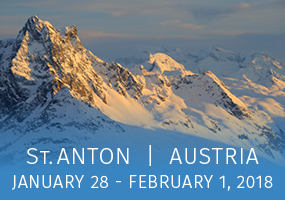
|
TopicsFor each of the below topics, a slot in the programme will be available for an oral communication selected out of the submitted abstracts.
Session Chair: Dr Andy PEAT, GlaxoSmithKline, United States Preclinical toxicity remains a challenge within drug discovery due to the complexity of biologic systems, limited understanding of drug interactions in vivo, and lack of appropriate assays to rapidly profile compounds. Improvements in this area are critical to successfully reducing the high attrition rates plaguing the pharmaceutical industry. Since many lead optimization programs face toxicity challenges, this session will focus on case studies that highlight strategies, technologies, and lessons learned from teams working to solve these issues. After the talks, a panel discussion is also envisioned to discuss different philosophies and opinions, as well as encourage audience participation.
Session Chair: Dr Doris RIETHER, Boehringer Ingelheim, Germany A wealth of lead generation methods has become available and a significant evolvement of the lead generation paradigm has occurred over the past years. Lead generation has become the crucial step in the drug discovery process in particular when dealing with unprecedented and difficult targets or novel target classes. The focus of this session will be on case studies for non-traditional lead generation approaches applying any of the available auxiliary technologies and capabilities such as DNA-encoded libraries or phenotypic screening.
Session Chair: Prof. Nuno MAULIDE, University of Vienna, Austria Organic synthesis remains a key driver for innovation in medicinal and pharmaceutical chemistry. The development of new and powerful synthetic methods can vastly increase the accessible chemical space, thus unlocking entirely new paths to synthesize novel medicines and natural products. In this session, emerging new methodologies focused on innovative synthetic disconnections as well as their applications to the synthesis of complex and relevant targets will be highlighted.
Session Chair: Dr Philippe NANTERMET, Merck, Sharp & Dohme, United States For many years drug discovery has been almost exclusively focused on small molecules and traditional vaccines. In the past few decades, thanks to advances in molecular biology, protein-based therapeutics, often referred to as “biologics” (antibodies, antibody conjugates, growth factors, modified insulin) have become increasingly successful. As the need for new approaches has become even more pressing, a new quiver of alternative modalities has emerged to help address biological targets that were previously deemed very difficult to drug, including extra- and intracellular therapeutic targets. These approaches include modified peptides and oligonucleotides, macrocyclic peptides, various conjugates that combine effector (agonism, antagonism, silencing,…) and other functions such as specific delivery or pharmacokinetics modulation. This session will feature stories from pharma and/or academia that illustrate the most recent advances in this ever more important area of modality innovation.
Session Chair: Dr Alison WOOLFORD, Astex Pharmaceuticals, United Kingdom Fragment based technologies are now accepted as a major contributing part of the drug discovery process, and have been adopted by academia and the pharmaceutical industry. This section will highlight some of the key challenges involved in working with fragments, and cover screening, hit identification and subsequent successful development into tangible lead compounds.
Session Chair: Dr Matthew HAYWARD, Pfizer, United States Chemical biology is a rapidly growing field of study at the interface of chemistry, biology, and biophysics and is utilized to interrogate, modulate, and/or elucidate biological pathways and targets of interest. Professor Benjamin Cravatt will open the session and discuss activity based proteomics for target and inhibitor discovery. The second half of the chemical biology track will illustrate stories from pharma centered around the use of chemical biology in drug discovery environment.
Session Chair: Dr Sarah SKERRATT, Convergence Pharmaceuticals, United Kingdom) This session will be put together by selected proposals out of the abstract submissions.
Session Chair: Dr Guido KOCH, Novartis, Switzerland Late Stage Functionalization (LSF) holds the potential to revolutionize the logic of chemical synthesis and open new ways to prepare novel natural products and medicines. The availability of new powerful catalytic chemistries for LSF showing a high degree of functional group tolerance and that can be performed under mild conditions offer tremendous opportunities for chemists to access new molecules that cannot be made easily by conventional approaches. The session will cover topics of emerging areas in LSF for complex molecules. |


